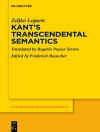In ‘The Heavenly Father: Lectures on Modern Atheism, ‘ Ernest Naville engages with the philosophical and theological dimensions of belief and disbelief in a secular age. Written in a systematic yet accessible style, Naville explores the intricacies of modern atheism, juxtaposing it against traditional theistic perspectives. His lectures invite readers to consider the implications of a world where divine authority is called into question, and he adeptly analyzes the cultural and intellectual currents influencing contemporary thought. Drawing on both classical and modern philosophical frameworks, Naville’s work serves as both a critical inquiry and an articulate defense of theistic belief amid rising skepticism. Ernest Naville, a prominent figure in the 19th-century Swiss philosophical landscape, was significantly influenced by the Enlightenment and Romantic ideals, which shaped his own explorations of spirituality and human existence. As a thinker deeply invested in the intersection of reason and faith, Naville sought to articulate a coherent response to the challenges posed by atheistic thought. His extensive academic background in philosophy and theology equipped him to address the spiritual crises of his time, making this work both reflective of his personal convictions and a broader societal commentary. ‘The Heavenly Father’ is a compelling read for those interested in the philosophical debates on atheism and theodicy. Naville’s eloquent prose and thought-provoking arguments challenge readers to confront their own beliefs about faith, reason, and spirituality. Whether one is a skeptic, a believer, or merely curious about the discourse surrounding atheism, this book promises to enrich the conversation and provoke deeper contemplation.
Sobre o autor
Ernest Naville (1816–1909), a Swiss philosopher and writer, was a prominent figure in the intellectual landscape of the 19th century, especially known for his compelling lectures and writings that addressed fundamental philosophical and theological questions of his time. A pivotal work among Naville’s contributions is ‘The Heavenly Father: Lectures on Modern Atheism’ (1865), an insightful endeavor to reconcile faith with the burgeoning scientific thought that characterized the Victorian era. In this book, Naville critically examined the implications of atheistic beliefs and argued for the inherent need for divine guidance in understanding the universe and human existence. His literary style is marked by a clear, argumentative approach, rich with the philosophical rigour that echoes the traditions of classical apologetics. Naville’s erudition and his ability to engage with contemporary intellectual currents made him a significant figure in the dialogue between science and religion. He sought to provide a reasoned defense of theistic perspectives and to articulate the relevance of spirituality amidst rapid scientific advancements. Naville’s work serves as a valuable window into the challenges posed by modernity to religious belief, and his contributions continue to be of interest to scholars exploring the history of ideas and the interplay between faith and reason in the 19th century.












